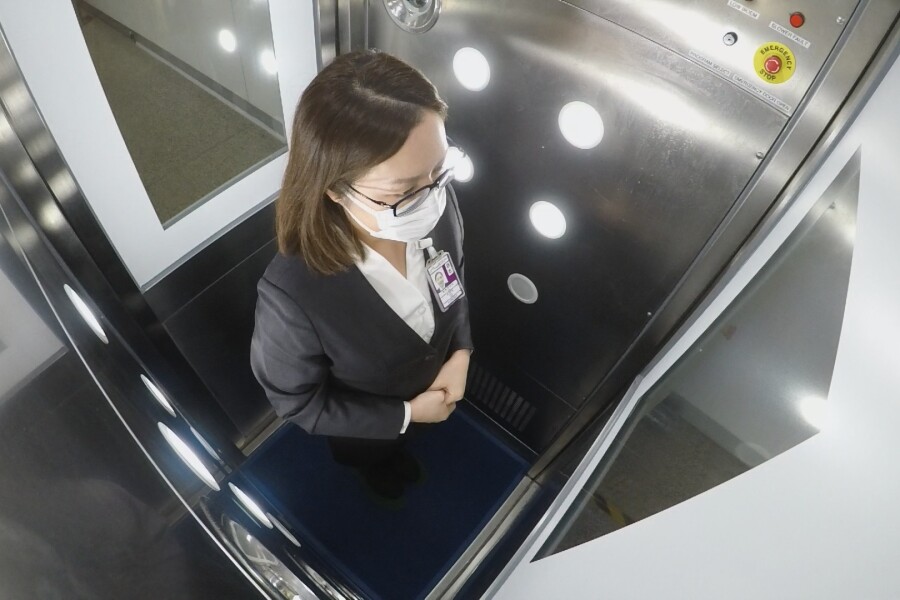Hong Kong International Airport has gone full sci-fi as it steps up its efforts to protect passengers and airport staff from coronavirus infection. Think disinfecting booths and autonomous cleaning robots.
The Asian hub has installed CLeanTech sanitization pods, which are full-body disinfection facilities that check your temperature prior to entering (the door to the pod will only open if you don’t have an elevated fever) and then once inside apply a 40-second disinfection and sanitizing procedure.

The pods’ interiors use photocatalysis process as well as a sanitizing spray to kill viruses and bacteria on the body.
Courtesy of Hong Kong International Airport
The pods’ interiors use photocatalysis (a UV-based disinfection method) to kill viruses and bacteria on the body. They also apply a sanitizing spray for disinfection that is aimed at clothing and carry-on items. A spokesperson for the Airport Authority Hong Kong told AFAR that the spray consists of BioEm Air Sanitizing and Purifying liquid, a sanitizer made from natural botanical extracts that the Hong Kong–based manufacturer says will kill a variety of bacteria and viruses. Currently, the booths are being used by airport staff who assess passengers for public health and quarantine purposes in what the airport described as a trial of the procedure.

Autonomous cleaning robot are disinfecting restrooms and other high-traffic areas.
Courtesy of Hong Kong International Airport
Additionally, intelligent sterilization robots outfitted with ultra-violet light and air sterilizers are being deployed to clean the restrooms and other high-traffic areas of the terminals. According to the airport, the robots can rapidly sterilize both the air and the surfaces they interact with.
The airport is also testing the efficacy of applying an antimicrobial coating—a spray that kills germs, bacteria, and viruses—to all high-touch surfaces in the terminal, including handles and seats of passenger buses and trains, at check-in kiosks and check-in counters, in restrooms, terminal seating areas, baggage claims, and on elevator buttons, among other places. The trial will run through May, after which airport authorities will decide whether to implement the sanitization procedures long term.

An antimicrobial spray is being applied throughout the airport.
Courtesy of Hong Kong International Airport
While the Hong Kong airport’s new measures may seem like something envisioned by sci-fi author Philip K. Dick, it’s likely that we will only continue to see airports testing out new technology and procedures for sanitizing surfaces and people as they work to find ways to minimize exposure to and transmission of COVID-19 among travelers and staff. Some of these new gadgets and gizmos could stick around for some time and be adopted by other transportation hubs (if they are deemed successful), while others may prove ineffective and go the way of the dodo. >> Next: All Major U.S. Airlines Are Now Requiring Passengers to Wear Face Masks








